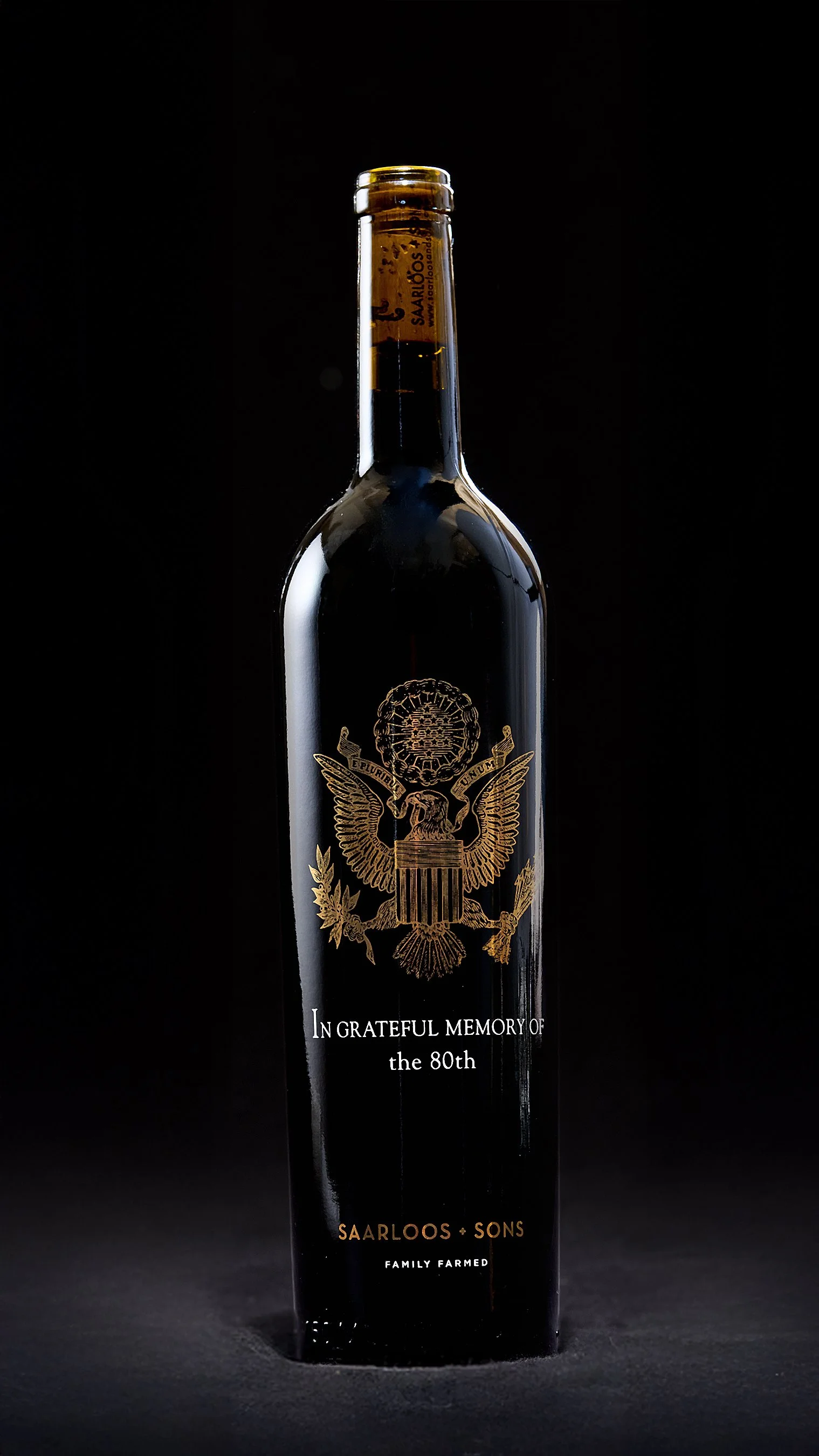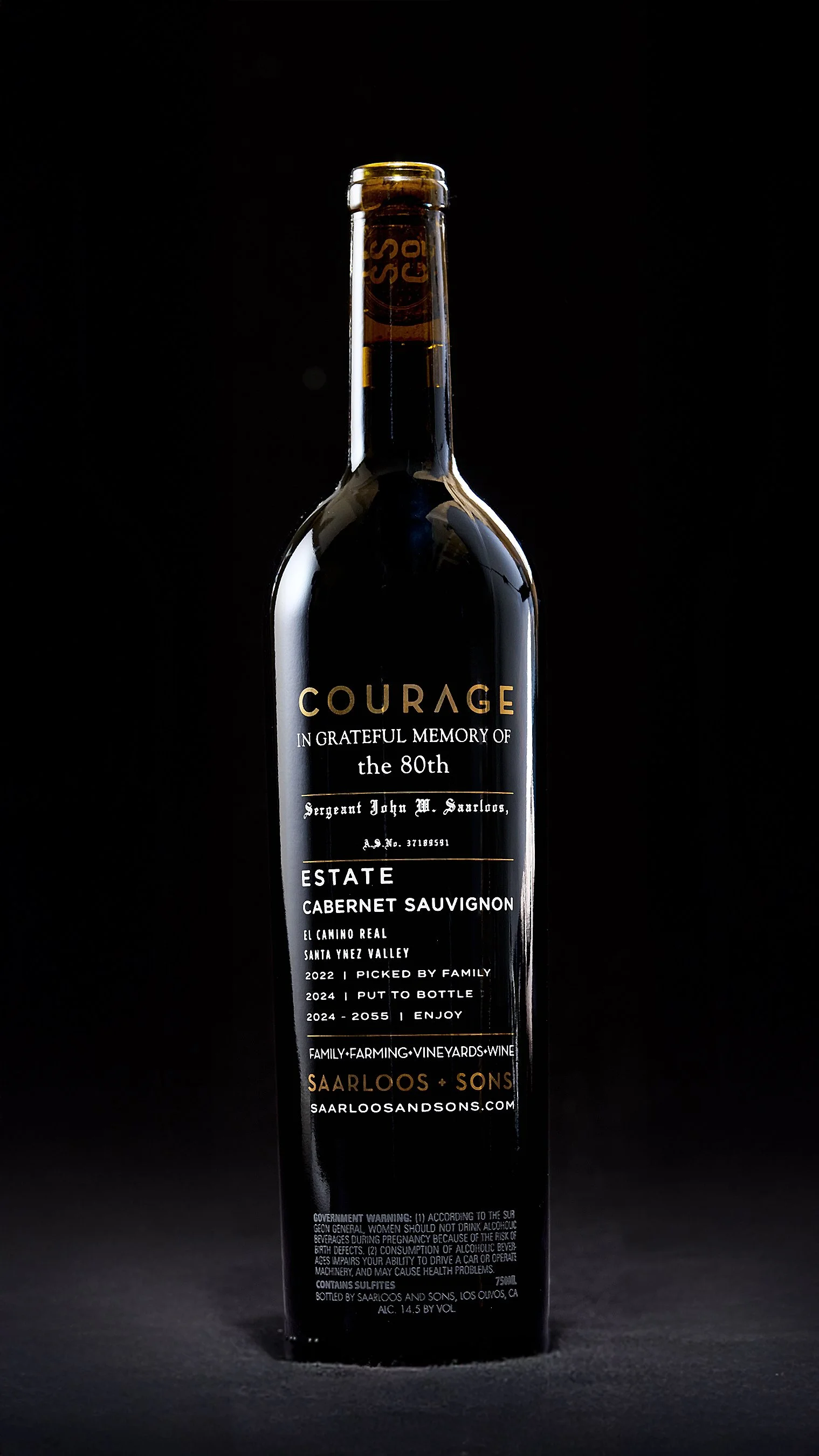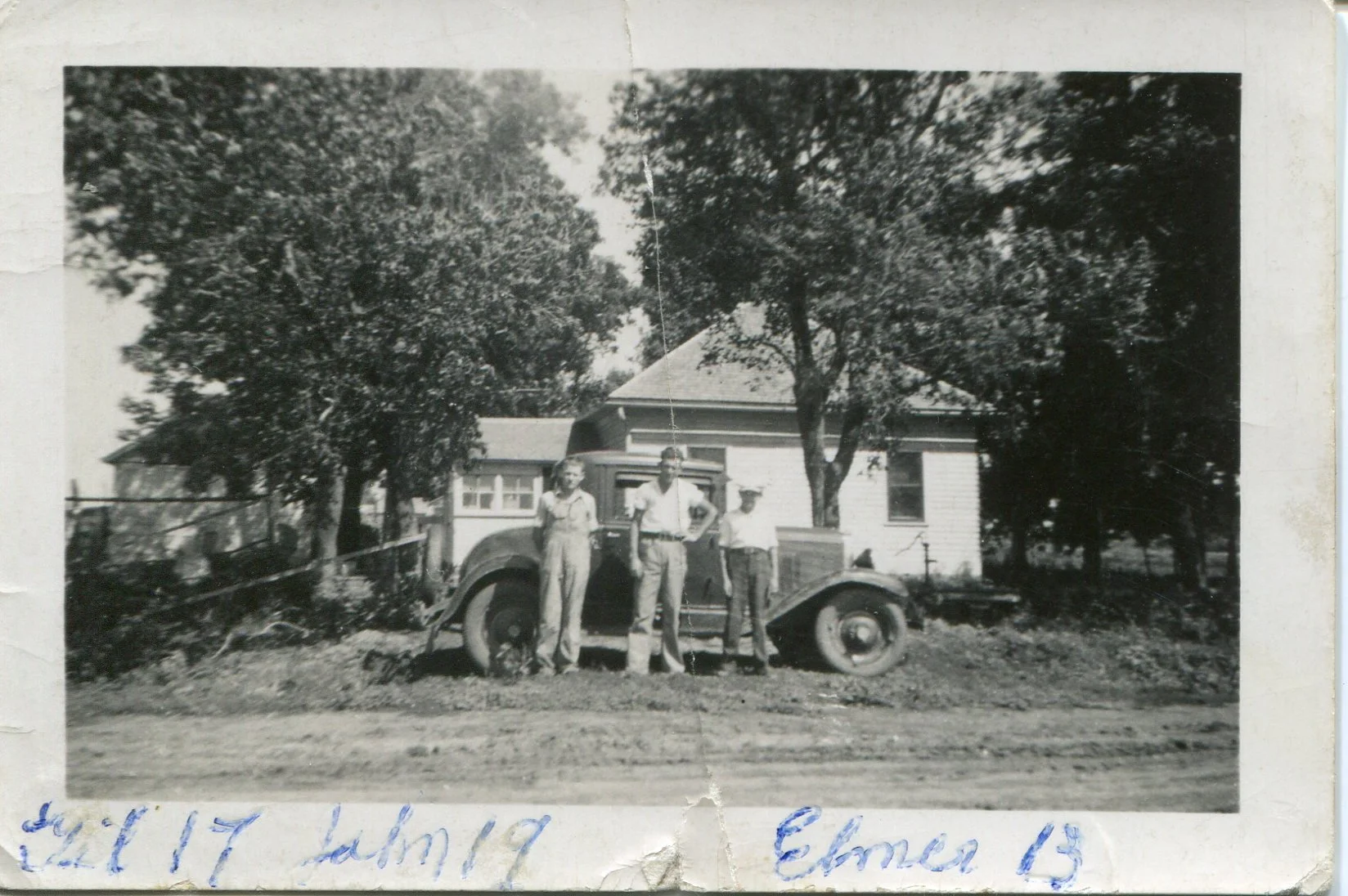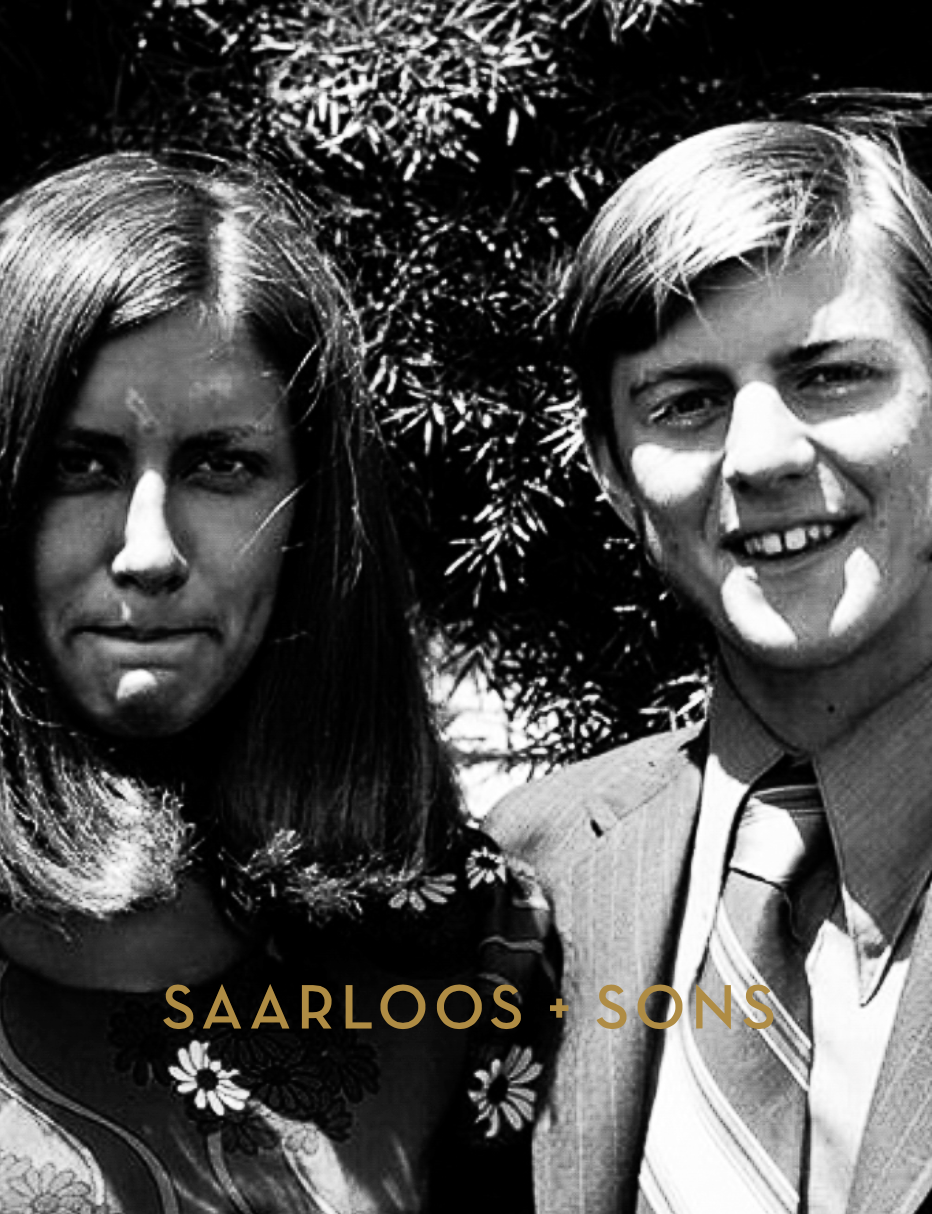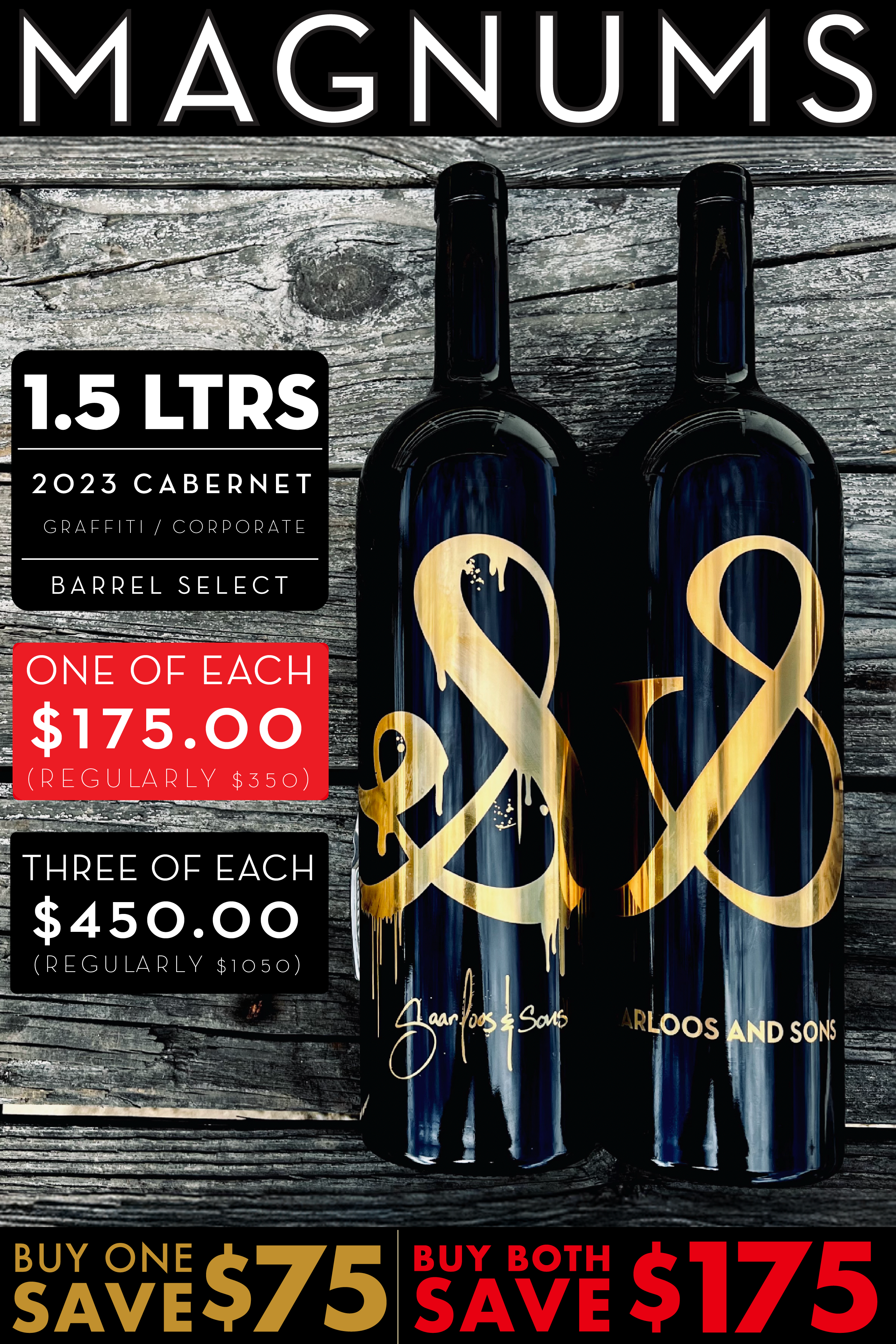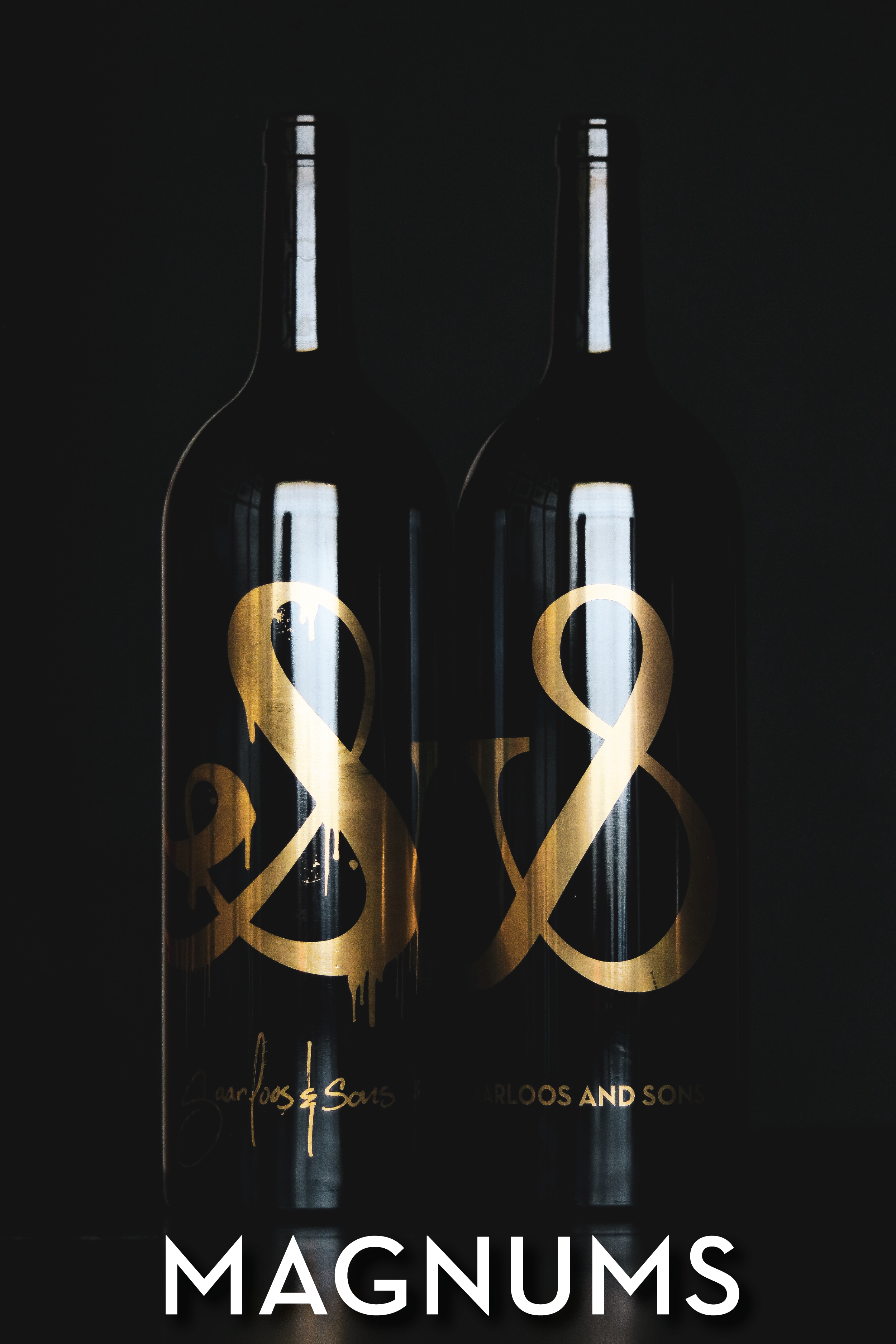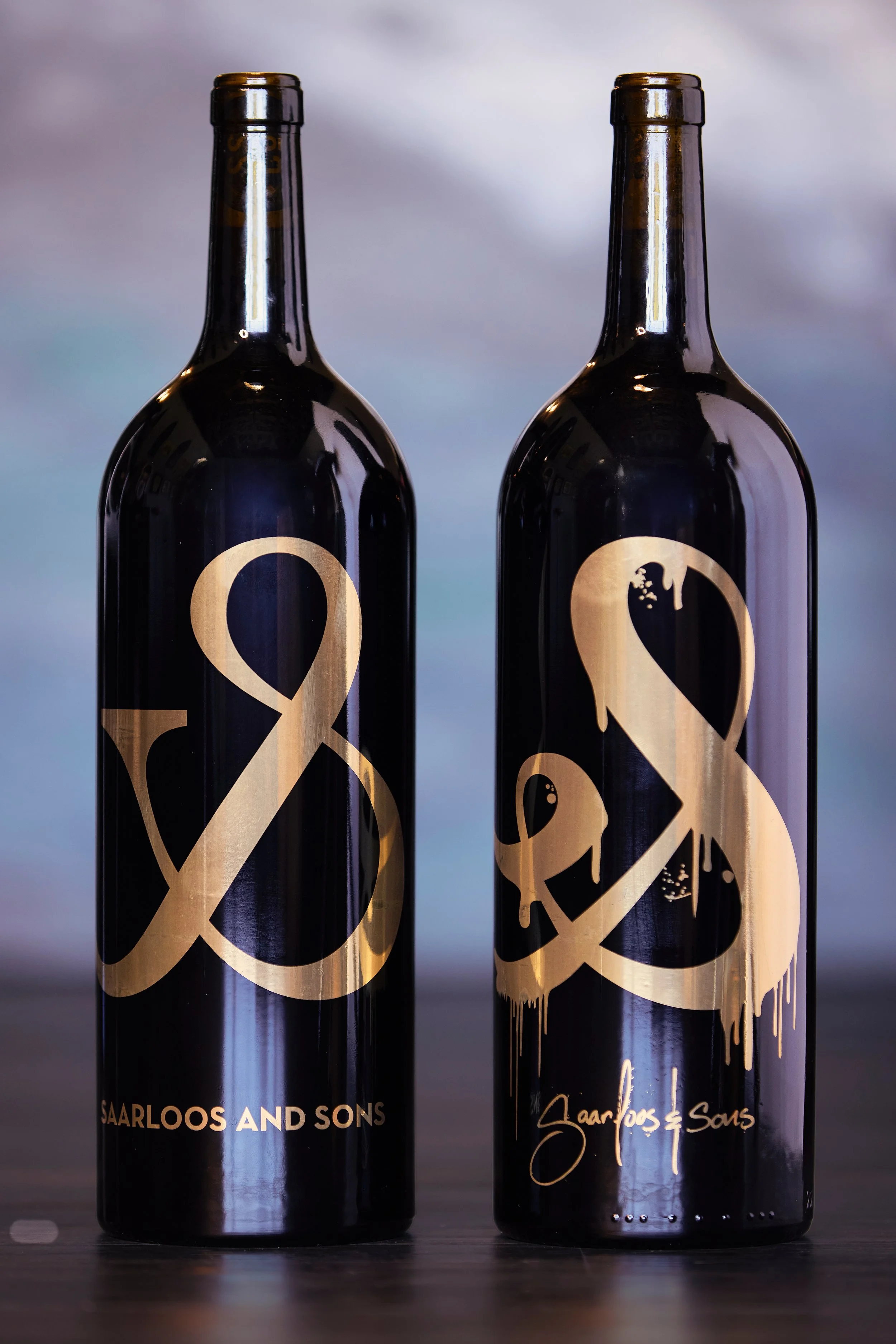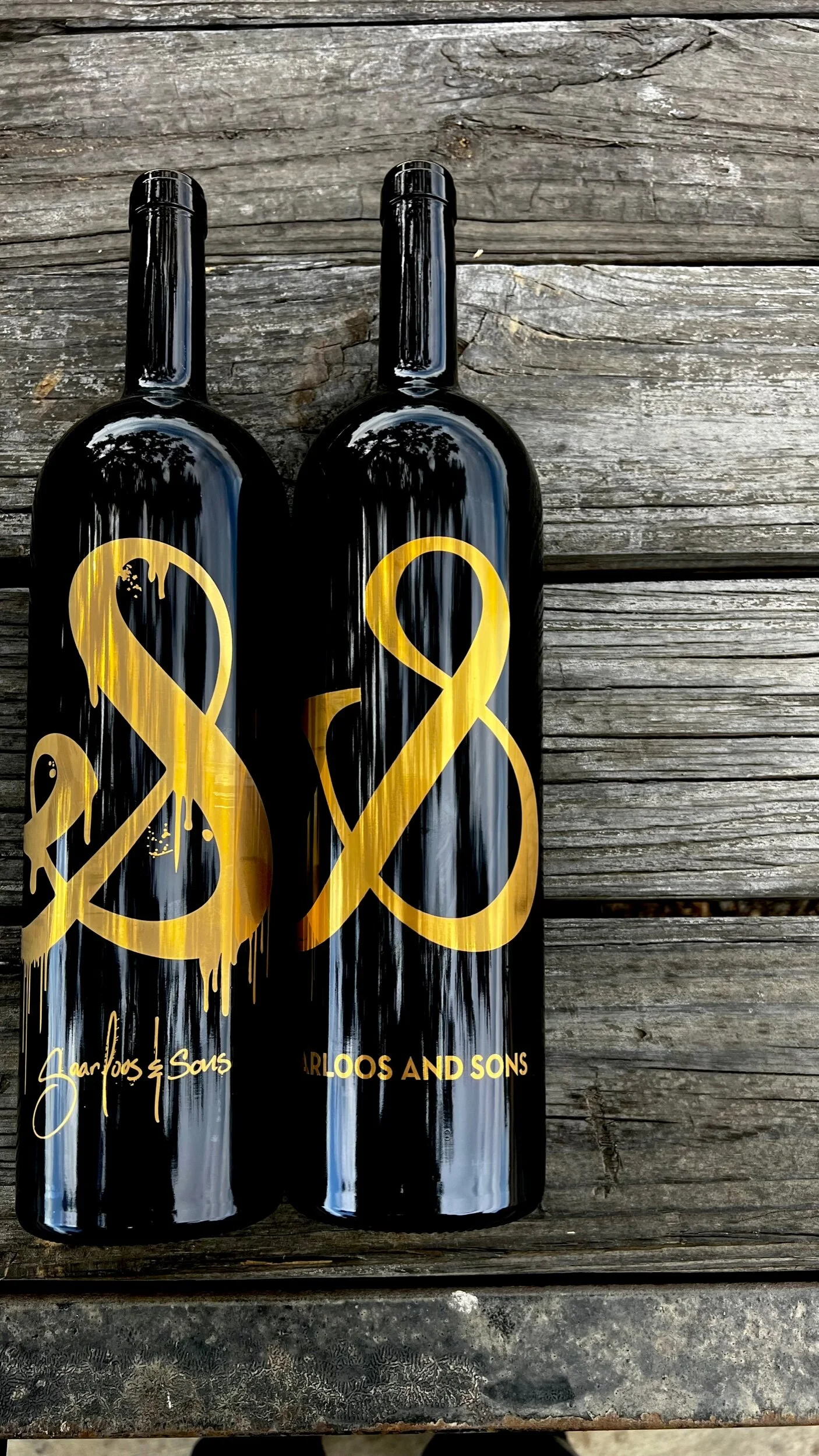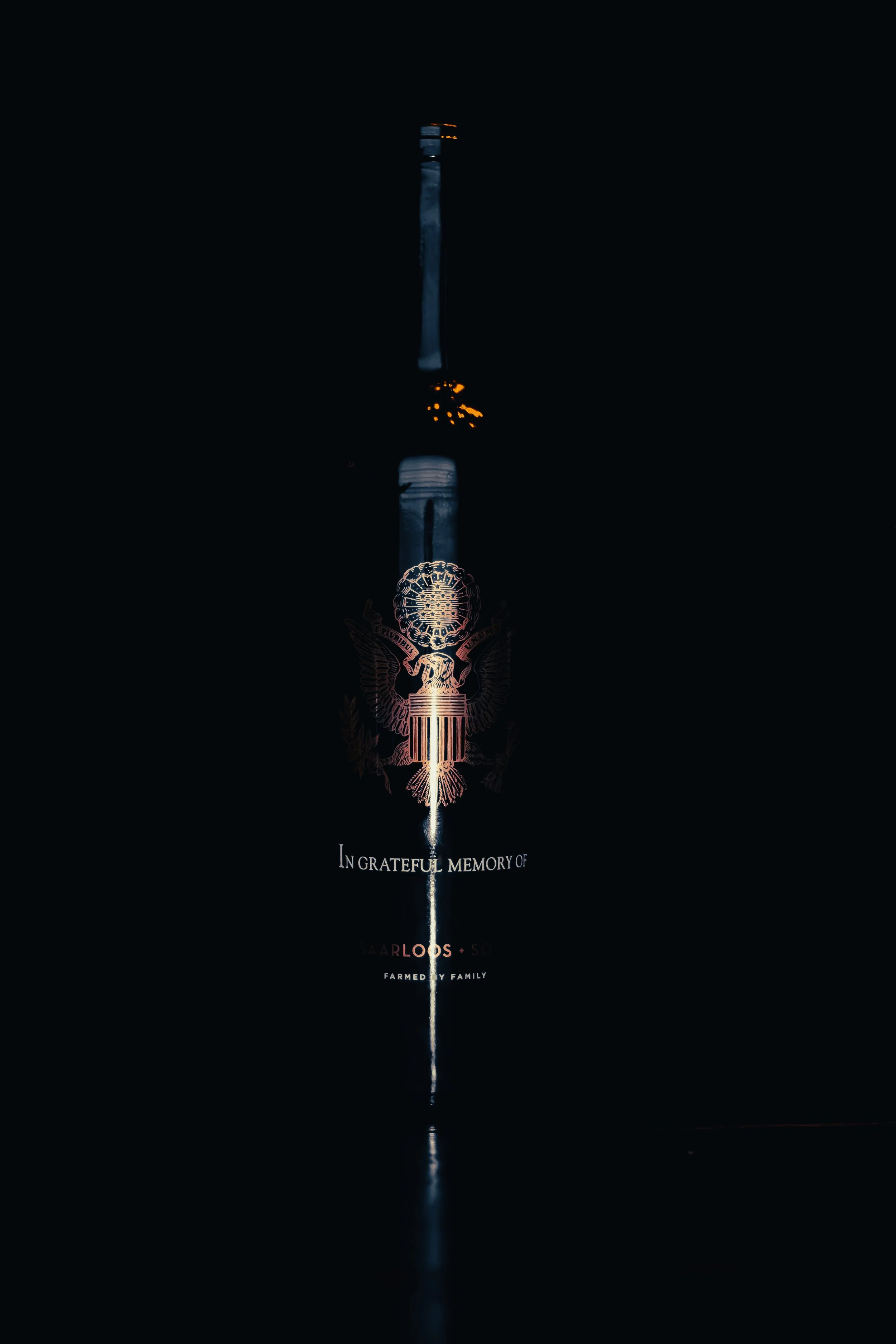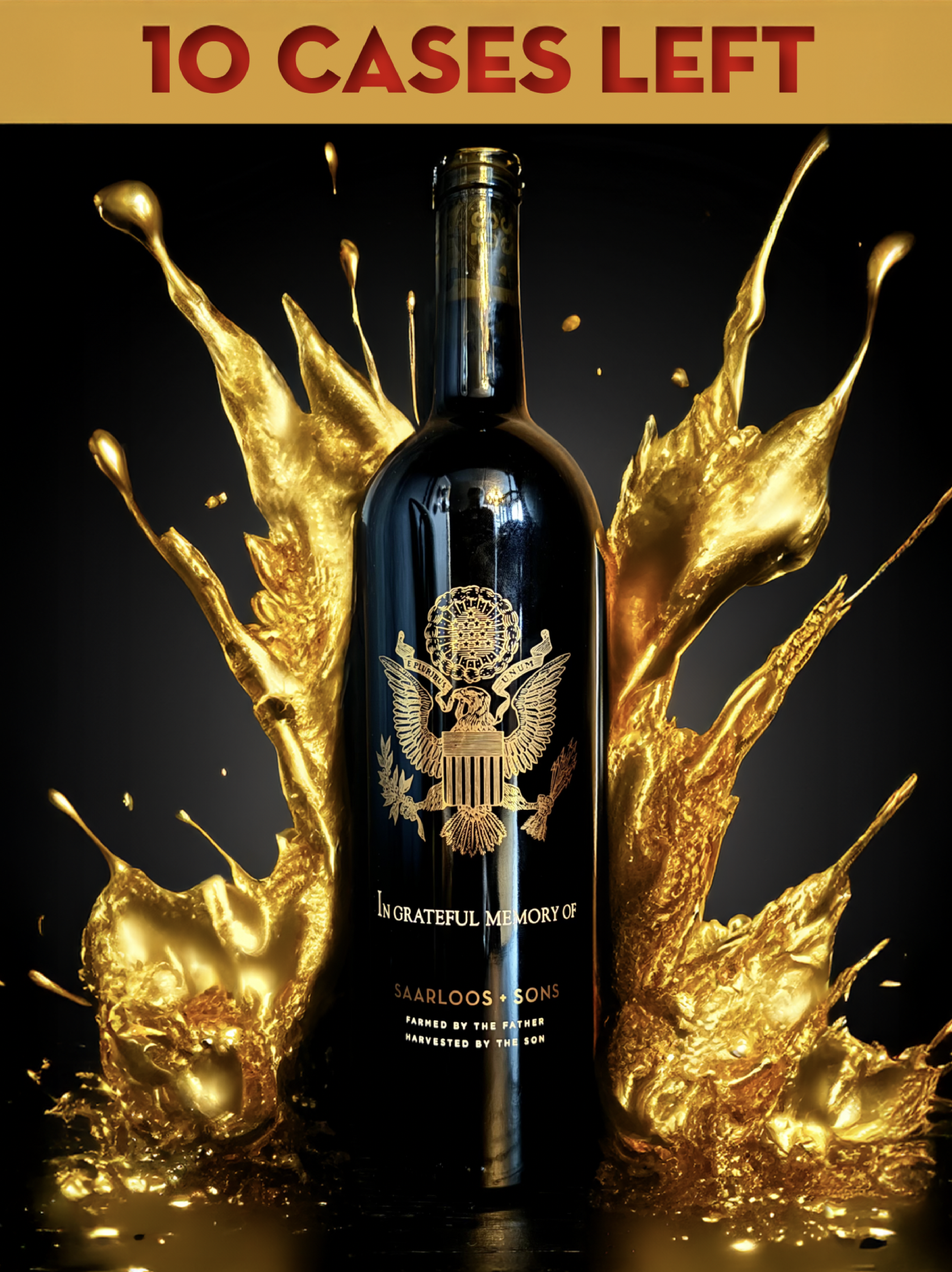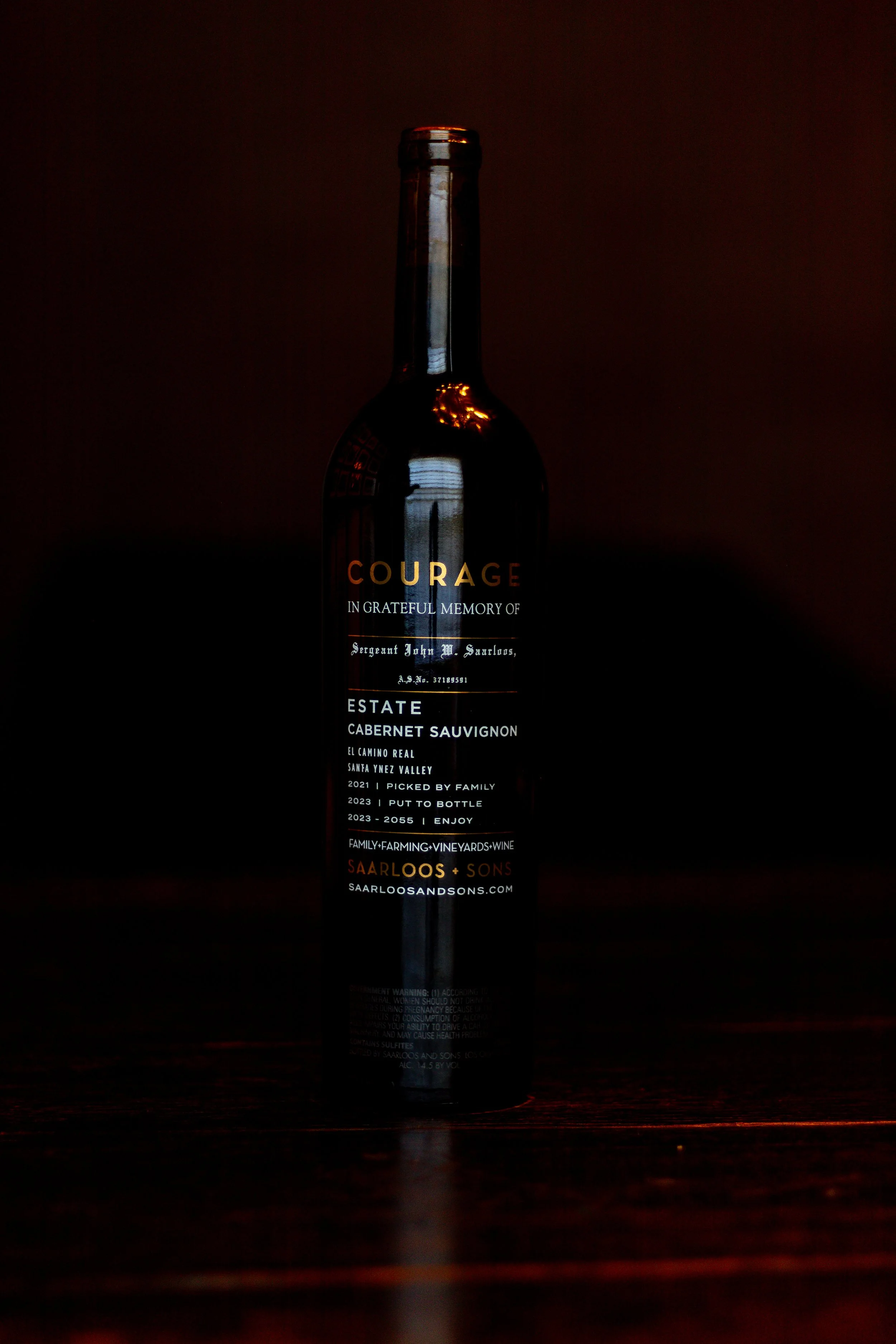WE DON’T MAKE WINE. WE HONOR THOSE WHO CAME BEFORE US. WINE IS THE PROOF THAT THE LEGACY ENDURES.
COURAGEIn Grateful Memory of The 80th
80 Years Ago — D-Day — France
Sergeant John W. Saarloos
This is his story.
This is what he did for our family.
This is what he — and so many others — did for each of us.
This is why we remember him.
This is why we remember them.
The courage he summoned still drives my life to this day.
Read Below:
Eighty years have passed since that morning in Normandy — when boys became men, and men became legends. When the world held its breath as they crossed the water, knowing that freedom itself hung in the balance. Among them was Sergeant John W. Saarloos, my great-uncle — a farmer’s son from Iowa who answered a call few could comprehend and even fewer would survive. He never came home, but the life we live today — the freedom we wake up to — exists because he and thousands like him refused to turn back.
And so, to honor him — and all who carried that kind of quiet, unshakable bravery into the unknown —
We name this wine Courage.
We Live In Greatful Memory
We name this wine Courage because it carries the name and the story of Sergeant John W. Saarloos — a son, a brother, a farmer’s boy from Iowa who stood up when the world was on fire. He didn’t ask for recognition. He didn’t ask for the weight. He simply answered the call. Eighty years ago, he stepped onto the beaches of France during the D-Day invasion — Operation Overlord — and never came home. His story isn’t just our family’s story; it’s a reflection of what real courage looks like. It’s not grand speeches or flags in the wind — it’s the quiet decision to stand up when every reason tells you to sit down. This year marks the 80th Anniversary of D-Day, a day that changed the course of the world. We remember it because freedom is never free, and because men like John paid for it in full. Every bottle of Courage is a small act of remembrance — a toast to those who went in our place, a reminder to live a life worthy of their sacrifice, and to keep saying, even when it’s hard, “For Here Am I, Send Me.”
Each morning when I wake up, I have a reminder set — “For Here Am I, Send Me.” It’s from the Bible. God asks, “Whom shall I send?” and I think about that verse every single day of my life. When I wake up and it’s dark and cold, when my to-do list is longer than it was yesterday, when the dirt feels heavier and the day feels like a fight — that reminder is waiting. Because as a farmer, the day is waiting for you. The work is waiting for you. If you don’t do it, it won’t get done, and tomorrow it’ll still be there, staring you in the face. Some mornings, it’s hard to get up. It’s hard to pull on your boots. It’s hard to walk out that door and face it again. But that reminder — that call — it’s waiting. And my answer is waiting for me to summon the courage to say it: “For Here Am I, Send Me.” After we lost Dad, when his life and his work and his weight all fell onto my shoulders, I didn’t think I could do it. The weight was unbearable. I missed him. I wasn’t sure I could fill those shoes, keep it all together, carry the load. But I had a family counting on me to rise — to become stronger, to bear the weight, to not just keep it going, but to keep it alive. There wasn’t a choice. I had to summon the courage to move forward. And every time I questioned myself — every time I hit that wall — I thought of John Saarloos. How he lost his father as a boy. How he took the family farm on his back to support his mother, sister, and brothers. How my grandfather admired him for it — how even years later, a strong man in his own right, he would tear up at the mere thought of his brother. Because to him, John wasn’t just his brother. He was his hero. His example. The man who showed him what it meant to step up when the world fell apart. He was just a child when his father died, in the middle of the Great Depression in Iowa — but he looked around at what needed to be done, and he said, in his own way, “For Here Am I, Send Me.” That’s what gets me. He didn’t have a choice either. He just stood up. He became my inspiration. He became my hero. Because if he could do it, then so could I. When my great-grandmother remarried, the farm — the only thing he had ever known — went to the new family. So John and my grandfather both enlisted. Two brothers, ready to serve. But the military made the call — they would only take one. They didn’t want to risk losing both sons of the same mother. They took the older brother and sent the younger home. And so John went. “For Here Am I, Send Me.” From that moment on, those six words became a thread in our family’s fabric. They carried us through loss, through harvest, through heartbreak. Because that’s what courage really is — not the absence of fear, but the presence of purpose. It’s moving forward when your heart and your head tell you to stop. It’s being scared and doing it anyway. It’s standing up and saying, “Send me,” when you’d give anything to stay home. That’s why this wine carries his name. That’s why it’s called COURAGE. Because the least we can do — eighty years later — is to remember him, to honor him, to say, when it’s our turn: “For Here Am I, Send Me.”
I think about John Saarloos Each Day - My Grandfathers Hero has Become Mine.
He could have Let His Family Fall Apart. But He Did Not. He summoned the Courage and took 5 words, “For Here Am I, Send Me”
and Set the Example. One I live by to this day 80 Years Later.
Thank You John.
- Keith Saarloos
June 6, 1944
John Saarloos was a part of that invasion. When I stop to think about what the Weeks, Days, Hours, Minutes and the Final Seconds that led to that moment..... My mind seems to shut off.
To be standing on a boat, crossing a channel, your Iowa farmboy face stinging with sea salt, every inch of you soaked as you shoulder up to strangers who’ve become brothers, staring out into a vastness that must have felt like an eternity away from home. There’s no sugarcoating it—this was hell. Every single second was like a strange mercy and a slow-burning terror all at once. You’d signed up for this, but nobody’s mind can really prepare for it. One second, gone. Another inch closer to what you feared most. The same hands that once held tools for bringing life from the soil now gripped a weapon, holding life and death in the balance.
John Saarloos was the son of a farmer, the eldest of three brothers and a sister. When his father passed young, John, just a boy, stepped into a role few could understand, let alone hold steady. He left school, took the reins, became the man of the house. They called it a “ten-horse farm”—ten horses needed just to work the land. It was a grind few of us today could imagine. John kept things moving. He fed his family, kept my grandfather in school. John held the family together, honoring his father and laying the path for those yet to come.
To my grandfather, that older brother—the one who picked up the pieces and held them all together—that brother was his hero. To a kid with no dad, John wasn’t just big brother; he was legend, the one who shouldered all the weight, who showed by example what it means to rise to an occasion you didn’t ask for. John honored and prepared.
But things changed. When my great-grandmother remarried, it was like a new captain taking over the ship. And John’s time as the anchor was over. The home he’d grown up in now had a new father, and for a young man who’d been “man of the house” for so long, stepping back into a role as someone else’s son wasn’t an option. So John and his younger brother, Gilbert, both enlisted. They wanted to stand as men, to protect and defend the land they loved, to honor their own family roots.
At enlistment, they took John and sent Gilbert home. The military’s logic—don’t risk losing both brothers to war.
One stays. The other goes. And sometimes I think, what if… What if John had stood behind my grandfather that day instead of in front? What if they had both gone? If that had happened, I wouldn’t be here. My children wouldn’t be here. And you wouldn’t be reading this now. Just that tiny shift of fate. Sometimes it’s those smallest moments that cast the longest shadows.
John went to war. He told my grandfather, “I probably won’t be back.” My grandfather, now rootless, headed west to California, a man on his own, without a father, without his older brother. He found his footing, found my grandmother, and built a life. And there’s a stack of photographs of them, my grandfather crossing the country every chance he got, finding his brother in Texas, California, and New York. No plane tickets, no easy calls—just raw love, pure loyalty. John meant the world to him, and in turn, he meant the world to us.
One day, when I was a kid, we sat at my grandparents' house watching TV. I saw a howitzer firing and thought it looked cool, the way a kid would. I couldn’t have been older than eight or nine. My grandfather, usually quiet and calm, looked at me and said, “There is nothing cool about that.” I didn’t understand. Later, under a tree, he told me about John. I felt then, for the first time, how much he loved his brother, missed him, and looked up to him. And from that moment, his hero became mine.
As I trace these red threads through our family’s story, I see moments knotted in time, bound to people who lived as they believed was right. They didn’t know they were creating a legacy; they just did what had to be done. John didn’t preach to his brother; he lived his life, and his brother watched. And that’s how it goes. My grandfather carried on in his brother’s honor; his sons watched him, and I watched them. And now I hope to do the same, to live in such a way that this message carries on, that someday my children will live in the light of it too.
Sergeant John W. Saarloos, A.S.No. 37189591, died on June 12, 1944, in Cherbourg, France, during Operation Overlord. A tank fired on a church tower, sheltering a sniper, and as the tower fell, it claimed John’s life.
In a letter signed by Franklin D. Roosevelt, it’s written:
“HE STANDS IN THE UNBROKEN LINE OF PATRIOTS WHO HAVE DARED TO DIE THAT FREEDOM MIGHT LIVE, AND GROW, AND INCREASE ITS BLESSINGS. FREEDOM LIVES, AND THROUGH IT, HE LIVES - IN A WAY THAT HUMBLES THE UNDERTAKINGS OF MOST MEN.”
I read this almost every day. And every time, I think, “God, grant me the strength to live up to that.” To make sure he would be proud. To make sure he is remembered and that his story doesn’t fade.
John never asked to be on a bottle of wine.
But nearly 80 years later, to not honor him would be a real injustice.
In Grateful Memory.
Drink it with Pride in Your Heart.
Here is to John.
Our Hero.
Keith Saarloos
Written on a letter signed by Franklin D. Rosevelt
HE STANDS IN THE UNBROKEN LINE OF PATRIOTS WHO HAVE DARED TO DIE
THAT FREEDOM MIGHT LIVE, AND GROW, AND INCREASE ITS BLESSINGS
FREEDOM LIVES, AND THROUGH IT, HE LIVES -
IN A WAY THAT HUMBLES THE UNDERTAKINGS OF MOST MEN
I read this almost every day,
I think to myself, God, grant me the strength to live up to this statement.
To make sure he would be proud of us,
To make sure that he is not forgotten,
That he doesn't die that second time.
John never wanted to be on a bottle of wine.
But 70 years later, it would be a travesty for him not to be.
In Grateful Memory








